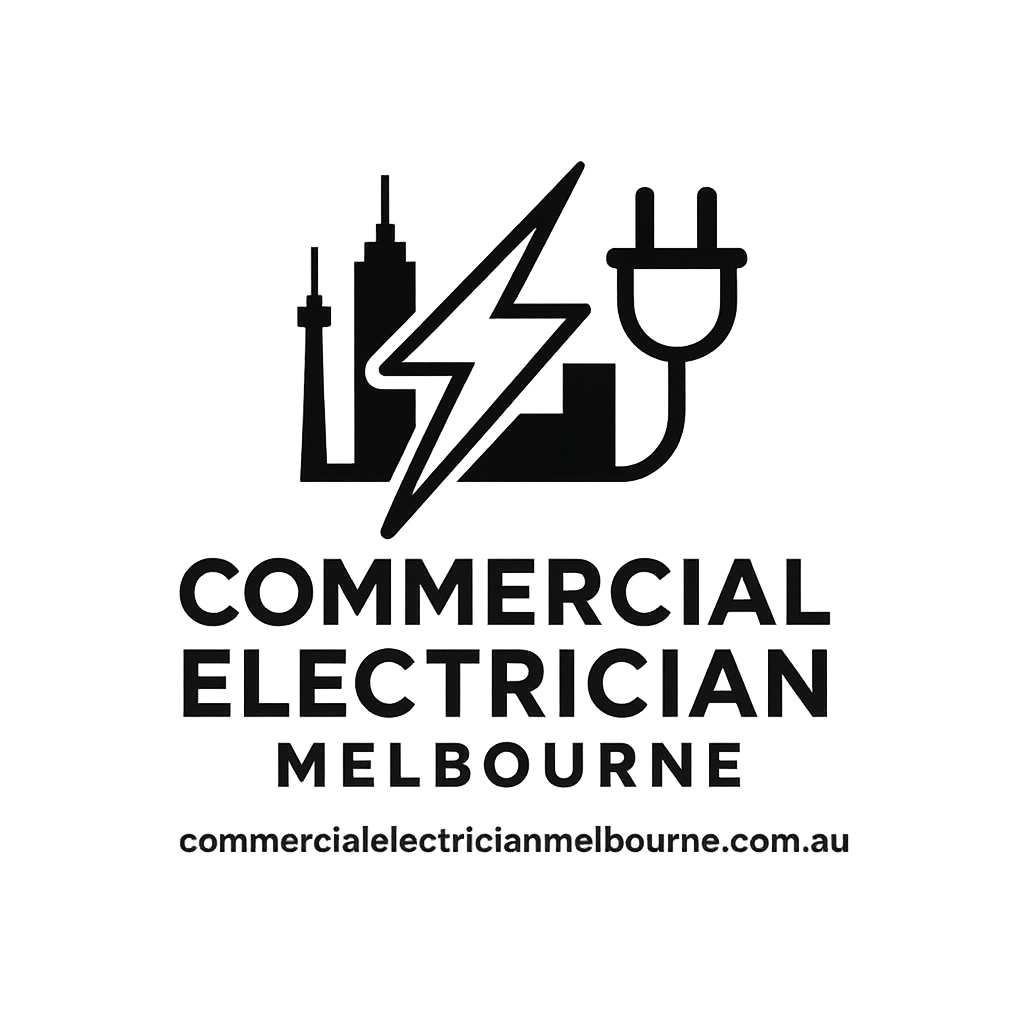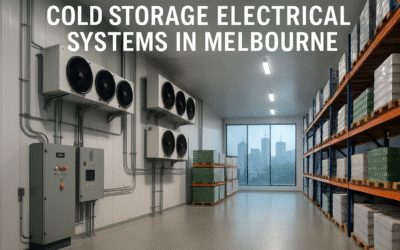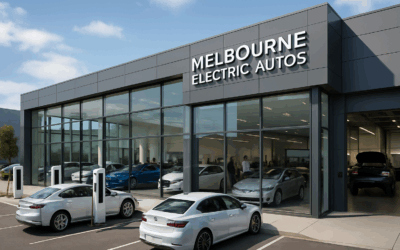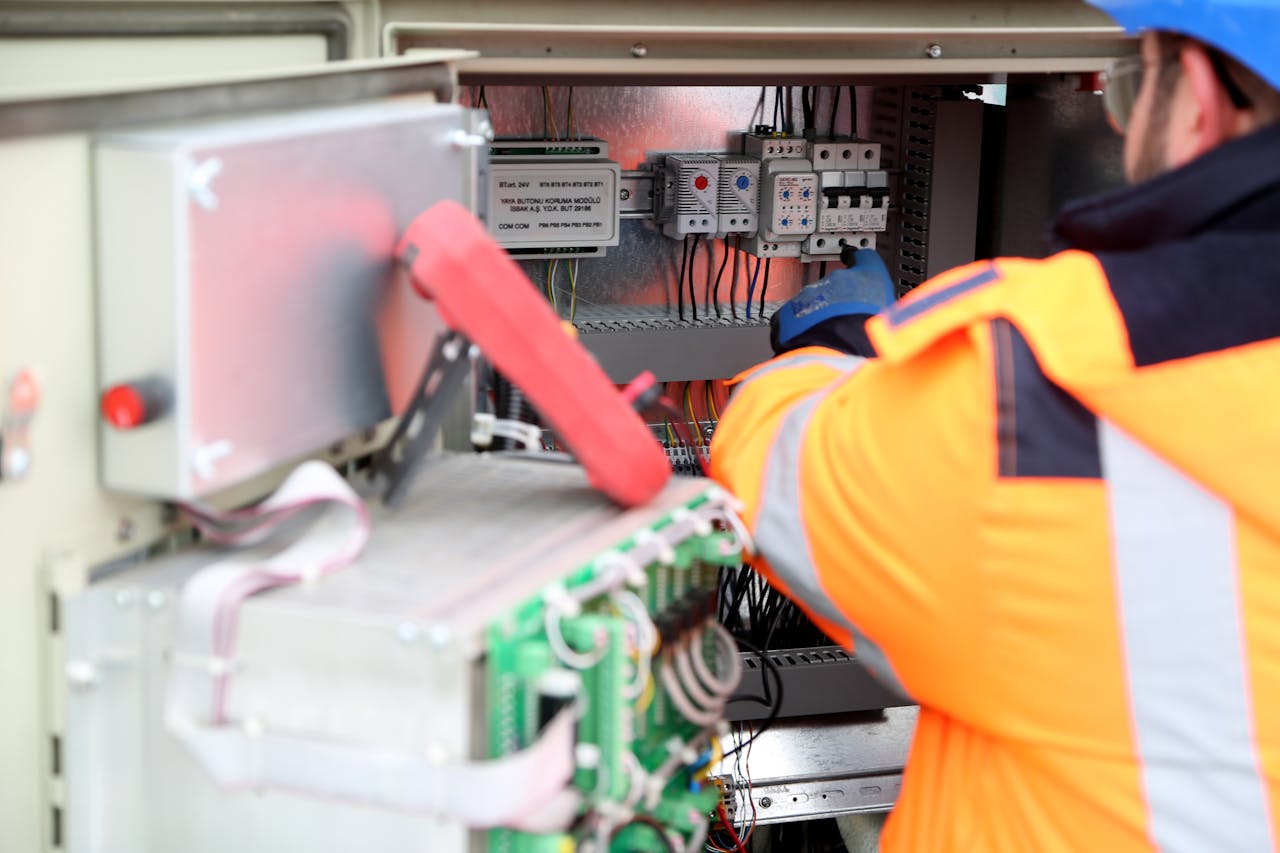Melbourne Commercial Electrical Code Compliance Guide 2025
Maintaining electrical compliance is not just a legal obligation—it’s a cornerstone of ensuring safety, efficiency, and reliability for your business operations in Melbourne. As a business owner, whether you run a bustling retail outlet, a modern office space, or an industrial facility, keeping up with commercial electrical compliance can feel overwhelming. But worry not! This comprehensive guide is here to break down everything you need to know about commercial electrical compliance in Melbourne, why it matters, and how you can achieve it without breaking the bank or losing sleep.
In this guide, we’ll cover the essential aspects of commercial electrical safety, local regulations such as those prescribed by Energy Safe Victoria (ESV), steps to ensure your building meets the required standards, and practical tips to find the right commercial electrical contractor. We’ll also provide a detailed electrical compliance checklist and share insights on electrical inspections, certifications, and maintenance practices that will keep your business on track and fully compliant in 2025.
Table of Contents
- Why Commercial Electrical Compliance Matters
- Understanding Melbourne Electrical Regulations
- Key Components of Commercial Electrical Code Compliance
- Benefits of Maintaining Electrical Compliance
- ESV Compliance and Electrical Safety Standards
- Preparing Your Business for an Electrical Inspection
- How to Find a Reliable Commercial Electrician in Melbourne
- Practical Tips for Electrical Compliance Management
- Local Resources, Guidelines, and Best Practices
- Conclusion
Why Commercial Electrical Compliance Matters
For business owners, understanding and adhering to electrical compliance guidelines isn’t just a bureaucratic exercise—it’s an investment in safety, operational efficiency, and long-term cost savings. Here are some primary reasons why commercial electrical compliance is critical:
- Safety First: Electrical non-compliance can lead to hazardous conditions, electrical faults, and even fire risks. Ensuring your property adheres to Melbourne’s electrical safety regulations helps protect your employees, customers, and assets.
- Legal and Insurance Requirements: Failing to meet the legal requirements for business electrical compliance can result in hefty fines, legal liabilities, and can even invalidate your insurance policies.
- Business Continuity: Unplanned electrical failures can disrupt your day-to-day operations, leading to costly downtime. Regular inspections and maintenance ensure that your electrical systems are reliable and robust.
- Reputation and Trust: Demonstrating a commitment to maintaining high electrical safety standards builds trust with clients, tenants, and partners, ultimately bolstering your business reputation.
Understanding Melbourne Electrical Regulations
Melbourne, like the rest of Australia, has a robust framework of electrical codes and regulations designed to safeguard both people and property. Here’s a breakdown of the key points you need to know:
Energy Safe Victoria (ESV)
Energy Safe Victoria is the statutory authority responsible for enforcing electrical safety standards in Victoria. They provide guidance, issue certificates, and conduct compliance audits to ensure that all commercial premises meet the required safety standards.
- ESV Compliance: It’s essential that all commercial electrical systems undergo regular inspections and necessary upgrades to remain ESV compliant. This includes periodic testing, maintenance, and ensuring that all installations meet current Australian Standards.
- Legal Obligations: Business owners are legally required to have electrical installations certified and inspected by a licensed commercial electrician. Failure to comply with ESV regulations may result in penalties, fines, or even shutdown orders.
Australian Standards and Victorian Electrical Standards
Commercial electrical installations must comply with a variety of standards, including:
- AS/NZS 3000: Often referred to as the “wiring rules,” this standard provides the essential requirements for electrical installations.
- Victorian-specific Codes: In addition to national standards, there are local amendments and regulations that ensure safety standards are in line with regional risks and infrastructure requirements.
Key Regulatory Areas
- Electrical Installations and Wiring: Ensuring that wiring is correctly installed, labeled, and maintained is critical to prevent electrical hazards.
- Testing and Certification: Routine testing and certification of electrical systems are mandatory to verify that installations remain safe and within compliance limits.
- Upgrades and Renovations: Any commercial property undergoing renovations must have its electrical systems reviewed and updated to meet current standards, ensuring compliance is maintained even after significant changes.
By understanding and adhering to these regulations, you help secure not only your business operations but also the safety of everyone who occupies or visits your property.
Key Components of Commercial Electrical Code Compliance
Achieving and maintaining commercial electrical compliance in Melbourne involves several critical components. Here’s a detailed look at each:
1. Electrical Safety Inspections
Regular inspections form the backbone of any sound electrical compliance strategy. Inspections should be conducted by a licensed commercial electrician to verify that all electrical systems are functioning correctly and safely.
- What to Expect: A thorough inspection includes checking wiring, circuit breakers, emergency lighting, grounding equipment, and other critical systems.
- Frequency: Typically, inspections should be carried out annually or as recommended by your electrician, particularly if you are in a high-risk industry.
2. Electrical Compliance Documentation
Documenting your compliance efforts isn’t just good practice—it’s a legal requirement. This means maintaining a record of all inspections, certifications, repairs, and upgrades. In the case of an audit or insurance claim, thorough documentation can prove invaluable.
- Checklist: Ensure that each inspection is accompanied by a detailed report. Keep copies of all compliance certificates, notices from Energy Safe Victoria, and maintenance records.
- Traceability: Having clear documentation helps track your progressive compliance and aids in identifying recurring issues before they become significant hazards.
3. Commercial Electrical Testing and Audits
Electrical testing ensures that your systems are not only compliant but also operating at optimal efficiency.
- Routine Testing: This includes testing for electrical faults, load capacity checks, and thermal imaging inspections to detect overheating components.
- Audits: Formal audits by a certified electrical compliance consultant can reveal hidden risks and provide recommendations on improvements.
4. Electrical Risk Assessment
A thorough electrical risk assessment involves evaluating potential hazards, understanding the implications of non-compliance, and prioritising necessary upgrades. This process should be continuous, with regular updates as your business evolves or as new equipment is installed.
- Identifying Hazards: Look for outdated wiring, overloaded circuits, and malfunctioning emergency systems.
- Mitigation Strategies: Develop a plan that includes replacing faulty components, regular maintenance schedules, and emergency response strategies.
5. Commercial Electrical Upgrades
Technology and safety standards are constantly evolving. Upgrading your electrical systems not only keeps your business safer but also often leads to increased energy efficiency and cost savings over time.
- Modern Solutions: Consider integrating energy-efficient lighting, smart electrical panels, and automated monitoring systems to streamline operations.
- Future-proofing: Upgrading means your business will be better prepared for future compliance demands and technological advancements.
Benefits of Maintaining Electrical Compliance
Ensuring your business complies with local electrical regulations offers far-reaching benefits that go beyond mere legal compliance. Here are some of the key advantages:
Enhanced Safety and Security
- Employee and Customer Safety: A compliant electrical system minimizes the risks of electrical faults, reducing the likelihood of fire hazards and other safety issues.
- Operational Reliability: With regular inspections and maintenance, your business can prevent unexpected power outages and equipment failures.
Financial Savings
- Reduced Liability: Compliance helps shield your business from potential fines, litigation costs, and insurance premium hikes.
- Energy Efficiency: Upgrading outdated systems often results in lower energy consumption and operational costs over time.
Improved Business Reputation
- Trustworthiness: Demonstrating commitment to electrical safety standards enhances the credibility and reputation of your business among clients, tenants, and regulatory bodies.
- Tenant Satisfaction: In commercial properties, tenants are more likely to trust and remain in a building that is verified for safety.
Legal and Regulatory Assurance
- Avoiding Penalties: Compliance with the strict codes set out by Energy Safe Victoria and other relevant authorities helps you avoid the risk of fines or forced closures.
- Business Continuity: Proper compliance ensures that your business remains operational even during regulatory inspections and audits, reducing the risk of costly interruptions.
ESV Compliance and Electrical Safety Standards
Energy Safe Victoria (ESV) is central to maintaining electrical safety for commercial establishments in Melbourne. Let’s dive a bit deeper into the ESV compliance requirements:
What Is ESV Compliance?
ESV compliance is a certification that verifies that your electrical installation adheres to the established health and safety standards. This involves rigorous testing, proper documentation, and regular inspections by accredited professionals.
- Certification Process: After performing thorough tests, an accredited licensed commercial electrician or compliance consultant will issue a certificate if your installation meets the required standards.
- Renewal: Electrical safety certificates need to be renewed periodically, which means routine re-inspections and testing.
Importance of ESV Compliance
- Legal Requirement: A core obligation for any commercial business in Melbourne is to ensure that electrical systems are tested and certified by an approved authority.
- Insurance Compliance: Many insurance policies require valid ESV compliance certificates to mitigate risk coverage.
- Safety Assurance: ESV compliance is a clear indicator that your property has undergone strict safety checks, ensuring a safe environment for everyone inside.
Common Challenges and Solutions
- Outdated Installations: Many older buildings face challenges meeting modern standards. The solution? Regular updates and retrofitting by certified professionals.
- Documentation Gaps: Ensure that your maintenance and inspection records are complete and accessible. Use digital tools or compliance management systems to track this data efficiently.
- Complex Electrical Systems: For businesses with large, complex electrical networks, partnering with experienced electrical compliance consultants is key to managing and simplifying the entire process.
Keeping your business compliant with ESV and other regulatory mandates not only protects your assets but also promotes operational excellence and safety.
Preparing Your Business for an Electrical Inspection
Preparing for an electrical inspection might seem like a daunting task, but breaking it down into manageable steps can make the process smooth and stress-free. Here’s how you can prepare:
1. Conduct a Pre-Inspection Audit
Before inviting an official inspection, carry out an internal review of your electrical systems:
- Self-Assessment: Use a comprehensive electrical compliance checklist to examine all aspects of your installation, including wiring, circuit breakers, and emergency systems.
- Addressing Minor Issues: Fix any visible issues, such as frayed wires or non-functional emergency lights, to avoid failing the inspection.
2. Gather All Relevant Documentation
Ensure you have complete records of previous inspections, maintenance work, and upgrades:
- Compliance Certificates: Keep copies of all past ESV compliance certificates.
- Maintenance Logs: Document any repairs, inspections, or upgrades that have been carried out.
- Blueprints and Diagrams: Detailed wiring diagrams and electrical system layouts can help inspectors understand your setup better.
3. Hire Licensed Professionals
Consider engaging a licensed commercial electrician to carry out a pre-inspection audit and review your documentation. Their expert insights can help identify potential issues before the official inspection.
4. Communicate Clearly with Your Team
Ensure that your staff is aware of the inspection date and what areas will be checked. This helps in keeping the premises organized and accessible for the inspectors.
5. Schedule Regular Maintenance
Even if an inspection isn’t imminent, regular maintenance ensures that your electrical systems remain compliant and safe. Scheduling routine service visits can help mitigate unexpected problems and increase the lifespan of your systems.
How to Find a Reliable Commercial Electrician in Melbourne
Selecting the right commercial electrician is crucial for ensuring that your business remains compliant and safe. Here are some practical tips on how to find the right professional:
1. Research Locally
Start with a quick Google search for “commercial electrical contractors Melbourne” or “electrical compliance experts Melbourne 2025.” Look for professionals who have extensive experience in handling commercial electrical systems and who are well-versed in Melbourne electrical regulations.
- Local Listings and Reviews: Platforms like Google My Business, Yelp, and local directories can provide honest reviews and ratings from previous clients.
- Word of Mouth: Ask other local business owners or your professional network for recommendations. Often, firsthand experiences are invaluable.
2. Verify Credentials and Certifications
When vetting potential electricians, ensure they:
- Are Licensed and Accredited: Verify their license details and check if they are accredited by Energy Safe Victoria.
- Have Relevant Experience: Look for electricians who have extensive experience with commercial electrical systems, especially those similar in scale to your business premises.
- Are Insured: Ensure that your chosen contractor has the necessary insurance coverage for liability and workers’ compensation.
3. Ask for Detailed Quotes
Once you have shortlisted potential contractors, request detailed quotes. A clear, comprehensive quote should outline:
- Scope of Work: What systems will be inspected, tested, or upgraded.
- Timeline: Estimated schedule for the project.
- Cost: A breakdown of charges, including labour, parts, and any other fees.
- Post-Work Support: Ask about warranties, follow-up inspections, or maintenance packages that may be offered.
4. Evaluate Their Communication
Good communication is essential:
- Responsiveness: They should be prompt in addressing your queries.
- Clarity: They should explain the compliance process, potential issues, and what you need to do before, during, and after the work.
- Professionalism: The right contractor will not only be professional in their work but will also treat your business with respect and care.
Practical Tips for Electrical Compliance Management
Managing commercial electrical compliance isn’t a one-off task; it’s an ongoing process that involves meticulous planning and regular review. Here are some practical tips to help you stay on top of your compliance game:
Maintain a Detailed Compliance Checklist
Develop and regularly update an electrical compliance checklist that includes:
- Regular inspection dates and times.
- Documentation of previous work and compliance certificates.
- A clear action plan for addressing non-compliance issues.
- Contact information for your primary electrical contractor and any backup professionals.
Schedule Regular Electrical Audits
Audits are an excellent way to ensure your systems remain up-to-date with current regulations:
- Annual Reviews: Schedule an annual audit with a certified electrical compliance consultant to identify any emerging risks.
- Post-Renovation Checks: Any significant structural changes or electrical upgrades should be followed by a compliance audit.
Train Your Staff on Electrical Safety
Educate your team on:
- Basic electrical safety protocols.
- The importance of reporting any unusual behaviour or signs of electrical faults.
- How to safely shut down systems in emergencies.
Regular training ensures that everyone understands their role in maintaining a safe environment.
Use Digital Tools for Management
There are several software tools and mobile apps available to help monitor electrical compliance:
- Documentation Software: Use cloud-based services to store and manage your certificates, maintenance logs, and inspection reports.
- Maintenance Scheduling Apps: These can help you set reminders and track service visits, ensuring that nothing falls through the cracks.
Stay Informed About Regulatory Changes
Electrical regulations can change. Subscribe to updates from local authorities such as Energy Safe Victoria, or follow trusted industry news sources:
- Newsletters: Many organisations offer newsletters that provide updates on new regulations, safety tips, and best practices.
- Professional Associations: Join local business networks or associations that focus on commercial property management and safety standards.
Local Resources, Guidelines, and Best Practices
As a Melbourne business owner, being aware of local guidelines and best practices is essential to effective compliance management. Here are some valuable local resources and tips:
Energy Safe Victoria (ESV)
- Official Website: The Energy Safe Victoria website is your go-to resource for the latest information on electrical safety audits, certification processes, and regulatory updates.
- Compliance Guides: ESV provides comprehensive guides that detail the requirements for electrical installations, testing frequencies, and documentation standards.
- Workshops and Seminars: Keep an eye out for local seminars and workshops hosted by ESV or related bodies. These sessions are beneficial for staying updated on evolving standards and networking with professionals.
Local Electrical Associations and Networks
- Melbourne Electrical Contractors Association (MECA): Engaging with local industry groups can offer access to resources, expert advice, and networking opportunities.
- Business Networking Groups: Joining groups that focus on small business operations in Melbourne can also provide leads on reliable and experienced commercial electricians.
Local Compliance and Safety Regulations
- Victorian Building Authority (VBA): Familiarise yourself with directives from the VBA that impact electrical installations in commercial buildings.
- Local Council Guidelines: Depending on your locality, ensure you review any additional municipal regulations that may affect electrical installations and safety requirements on your premises.
Standard Operating Procedures (SOPs)
Develop internal standard operating procedures that include:
- Regular electrical safety inspections.
- Emergency protocols in case of an electrical fault or incident.
- A flowchart of responsibilities for compliance management and post-incident reviews.
Case Studies and Success Stories
Learning from the experiences of other Melbourne businesses can provide practical insights:
- Local Case Studies: Review case studies of similar businesses that successfully navigated electrical upgrades, audits, or compliance challenges.
- Testimonials: Don’t hesitate to ask your electrician for testimonials or references from other local businesses. This can give you confidence in their expertise and reliability.
Conclusion
Maintaining commercial electrical compliance in Melbourne isn’t just about meeting a regulatory checklist—it’s about safeguarding your business, protecting your employees and customers, and ensuring sustained operational efficiency. By understanding the intricacies of Melbourne electrical regulations, embracing regular inspections and audits, and working with experienced commercial electricians, you can secure your business against electrical hazards while also reaping considerable benefits in efficiency and cost savings.
In this guide, we’ve covered everything from the basics of ESV compliance and Australian Standards to practical tips for managing your compliance documentation and finding the right contractor. Whether you’re preparing for your next scheduled inspection or planning a major electrical upgrade, these insights are designed to empower you to make informed decisions that will keep your business compliant and safe well into the future.
Remember, electrical compliance is an ongoing commitment. Regular audits, prompt maintenance, and staying informed about the latest updates in regulations ensure that your investment in compliance pays off by protecting your business from potential risks and costly disruptions.
If you’re ready to take the next step in ensuring your Melbourne-based business meets all commercial electrical safety checks, start by reviewing your current electrical compliance documentation, scheduling a pre-inspection audit, and reaching out to certified local professionals. In today’s dynamic business environment, staying ahead in compliance isn’t just best practice—it’s essential for longevity and success.
By following this comprehensive guide, you’ll be well-equipped to navigate the complexities of commercial electrical compliance in Melbourne with confidence and clarity. Remember, investing in the proper electrical safety measures today not only maintains regulatory compliance but also paves the way for a robust, secure, and prosperous business tomorrow.
For more insights, tips, and updates on commercial electrical safety and compliance, keep an eye on our blog, and feel free to reach out if you have any questions or need further assistance in managing your electrical systems.
Embrace the power of compliance and let your business shine safely and efficiently as you tackle the challenges of 2025 and beyond!.





0 Comments